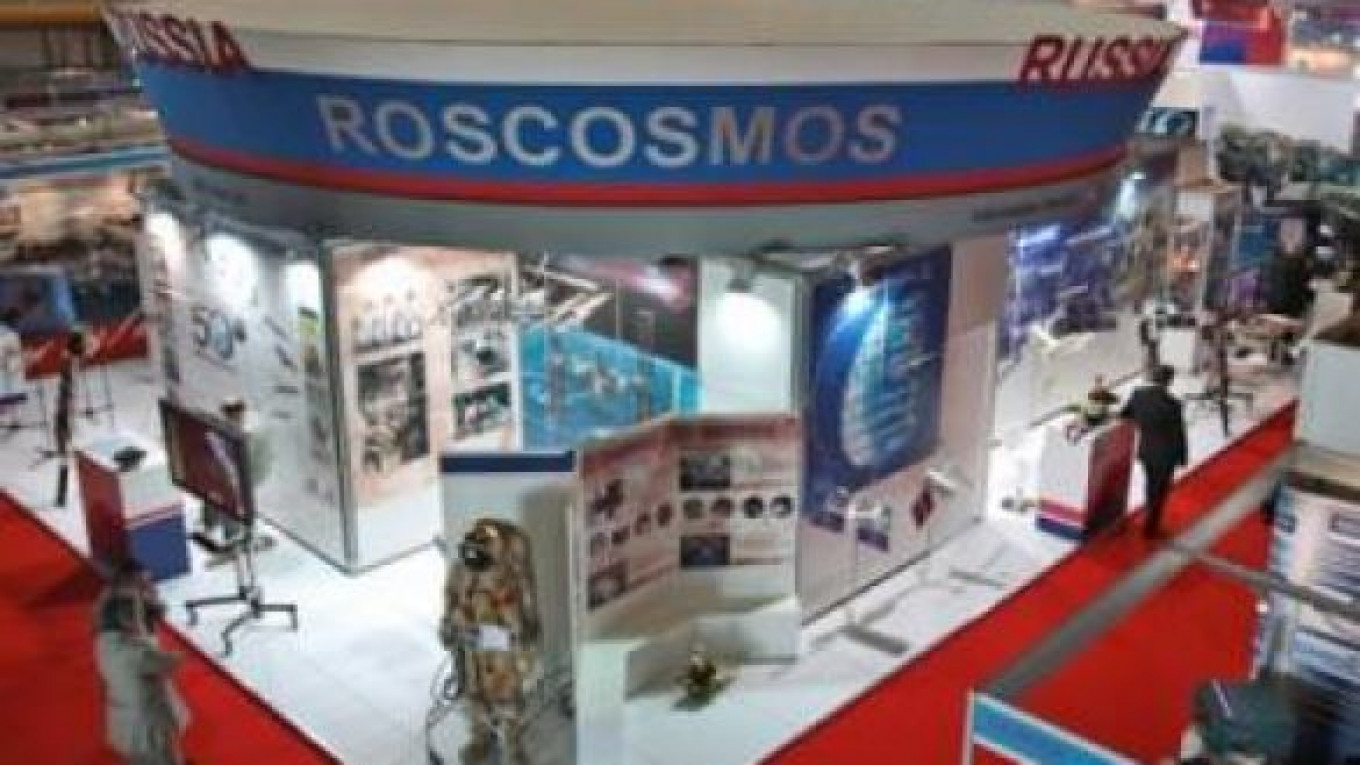President Vladimir Putin has said he might create a space ministry as part of streamlining the industry.
"The state either owns almost everything in the space industry, or has a controlling stake," Putin said Friday, according to a transcript of his speech on the Kremlin website. "Generally, I don't rule out that a ministry could be established here."
He then ordered the Cabinet and its pointman for the sector, Deputy Prime Minister Dmitry Rogozin, to consider the idea further.
The proposal of upgrading the Federal Space Agency, known as Roscosmos, to a ministry came up at a space industry meeting. Chaired by Putin, the meeting looked at the ways to improve management of the sector.
Another idea is to turn the agency into a state corporation that not only puts out contracts to space companies, but also owns them.
Putin said the government would spend 181 billion rubles ($5.8 billion) on space-related programs this year, an amount that ranks as the world's third largest space budget after those of the United States and the European Union.
The number is more than 300 percent of what Russia spent in 2008, Putin said. Increasing expenditures on the space industry allowed for completing the Glonass project to create the country's own global navigation system. A portion of the money was Russia's contribution to operating the International Space Station.
The government plans to spend a total of 1.6 trillion rubles on the space industry from this year through 2020, Putin said.
Putin held the meeting after visiting the site of the future Vostochny Cosmodrome, where construction is on schedule to make the first launch of a Soyuz rocket in 2015.
Russia wants Vostochny to reduce the country's dependency on the Baikonur Cosmodrome, leased from Kazakhstan for $115 million a year through 2050. Vostochny will be in the country's eastern Amur region on the same latitude as Baikonur.
Vostochny will host the launches of units for any space stations and of spacecraft to the Moon and Mars in the future, Putin said.
Although Russia plans to continue using Baikonur, he described the launch pad as "obsolete and worn-out." A more compact Vostochny will be cheaper to use, he added.
Putin said U.S. experience with its Cape Canaveral Air Force Station in Florida was one of the reasons why Russia rejected the option of locating its new space center on the Pacific coast. Weather conditions force the Americans to interrupt their launch schedules, he said. Skies over Vostochny are sunny 300 days a year.
The meeting in Blagoveshchensk, the capital of the Amur region, and the visit to the launch pad's construction site took place as Russia celebrated the 62nd anniversary of the first manned space flight by Yury Gagarin.
Putin listed the industry's sore spots, calling for remedying the situation.
Firstly, he said the industry used largely antiquated equipment, and sourced 80 percent of its electronic components to foreign manufacturers.
Also, Russia lags behind the other spacefaring nations in satellite communications, remote sensing and deep-space exploration.
In addition, Russia should give more emphasis to developing heavier launch vehicles and new spacecraft for various purposes, Putin said. One more goal, he said, was to build up the number of satellites in orbit, which would cater to the needs of the economy and social services.
Rogozin said at the meeting that Russia also planned to increase the number of defense satellites that warn of missile attacks and conduct reconnaissance, Interfax reported.
Contact the authors at medetsky@imedia.ru and i.nechepurenko@imedia.ru
Related articles:
A Message from The Moscow Times:
Dear readers,
We are facing unprecedented challenges. Russia's Prosecutor General's Office has designated The Moscow Times as an "undesirable" organization, criminalizing our work and putting our staff at risk of prosecution. This follows our earlier unjust labeling as a "foreign agent."
These actions are direct attempts to silence independent journalism in Russia. The authorities claim our work "discredits the decisions of the Russian leadership." We see things differently: we strive to provide accurate, unbiased reporting on Russia.
We, the journalists of The Moscow Times, refuse to be silenced. But to continue our work, we need your help.
Your support, no matter how small, makes a world of difference. If you can, please support us monthly starting from just $2. It's quick to set up, and every contribution makes a significant impact.
By supporting The Moscow Times, you're defending open, independent journalism in the face of repression. Thank you for standing with us.
Remind me later.






